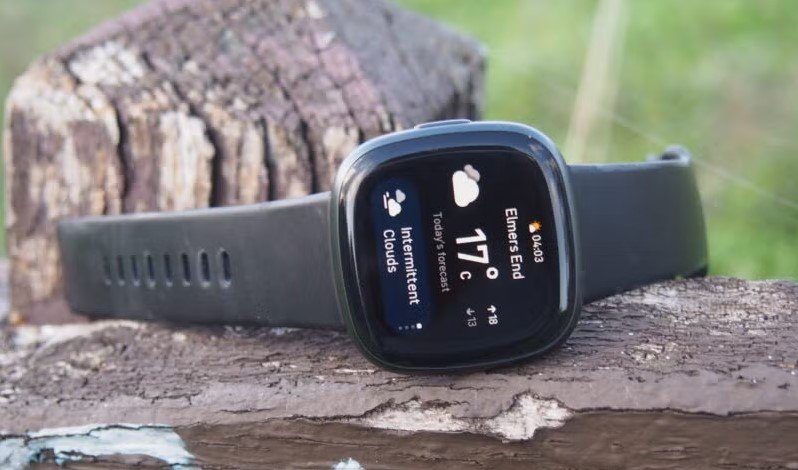Google’s latest move to phase out a popular Fitbit feature has left many users frustrated. The tech giant, which has owned Fitbit since 2021, has confirmed that it will be shutting down the smart voice assistant feature for several Fitbit models, including the Fitbit Sense and Versa devices. The change, which will take effect within weeks, will significantly impact the way users interact with their devices. But how exactly will this affect you?
The announcement has sent ripples through the Fitbit community, especially among those who rely on the voice assistant for convenience. As it stands, the feature allows users to perform a variety of tasks hands-free—from checking the weather to setting reminders—making it a valuable tool for those who prefer a more streamlined experience. But with its shutdown on the horizon, many are now wondering what this means for the future of their devices.
The Impact on Fitbit Users
When Google took over Fitbit in 2021, many speculated about changes to the brand’s signature features. But no one could have predicted that such a vital part of the wearable’s functionality would be axed so soon. For Fitbit users, the removal of the voice assistant is more than just an inconvenience—it’s a disruptive shift that could impact day-to-day use.
Many users rely on voice commands to interact with their devices while exercising, running errands, or even driving. With the loss of this feature, those who’ve become accustomed to this hands-free convenience may need to adjust their routines. While the tech world has seen its fair share of feature removals and updates, this one feels particularly significant, especially given Fitbit’s previous reputation for offering practical, user-friendly features.

Why Is Google Phasing It Out?
While Google has not provided an exact reason for the shutdown, industry experts speculate that the company is consolidating its focus on its own voice assistant technology. Google Assistant, which is already integrated into various smart devices, might be the company’s preferred platform moving forward. By redirecting users to Google’s own ecosystem, the company could improve the overall user experience, even if that means sacrificing some Fitbit-specific functions in the process.
Here are a few possibilities for why this decision is being made:
-
Integration with Google Ecosystem: Fitbit may be better integrated with Google’s broader product lineup, which includes Android, Nest devices, and more. This shift could improve cross-platform compatibility.
-
Simplification: By focusing on one unified voice assistant platform, Google could streamline operations and reduce overhead.
-
User Feedback: It’s possible that the voice assistant feature didn’t see widespread usage, leading Google to reassess its value.
For those who were excited about the potential of Fitbit’s voice assistant, this sudden phase-out might feel like a step backward.
What’s Next for Fitbit Devices?
The removal of the voice assistant feature doesn’t mean Fitbit devices are losing their overall usefulness. The company’s wearables still offer a wide array of fitness-tracking capabilities that remain the brand’s core strength. Users can still monitor their heart rate, track their sleep patterns, and even check their step count with ease. However, the removal of the voice assistant may leave a gap for those looking for a more interactive experience.
Google has not yet revealed whether any alternative features will replace the voice assistant or if new functionalities will be added to fill the void. For now, the focus seems to be on enhancing Fitbit’s core fitness tracking functions, though users are hoping for some clarity in the coming weeks.
A Look at the Affected Devices
Fitbit Sense and Versa models are the primary devices impacted by this change, but it’s unclear whether other Fitbit models will face similar shutdowns. Here’s a breakdown of the affected models:
-
Fitbit Sense: Known for its premium design and health-tracking features, including stress management tools and ECG monitoring.
-
Fitbit Versa: A more affordable option, with a range of fitness-tracking capabilities and a vibrant touchscreen.
It’s worth noting that not all Fitbit models will lose the voice assistant. Devices like the Fitbit Charge and Inspire series, which focus more on fitness tracking and less on smart features, are expected to remain unaffected.
| Device Model | Affected Feature | Expected Shutdown Date |
|---|---|---|
| Fitbit Sense | Voice Assistant | May 2025 |
| Fitbit Versa | Voice Assistant | May 2025 |
Will Google Regret This Move?
As users express their discontent online, questions are being raised about whether this decision will hurt Google’s long-term relationship with Fitbit customers. With competitors like Apple and Samsung continuing to enhance their wearables with robust voice assistant features, Google’s decision to remove such functionality could lead some users to reconsider their brand loyalty.
For now, many are left wondering if Google is sacrificing convenience for long-term gains or if they’ve simply underestimated the demand for a more interactive experience on wearable devices. One thing’s for sure: the next few weeks will determine how much of an impact this decision has on the Fitbit user base.








